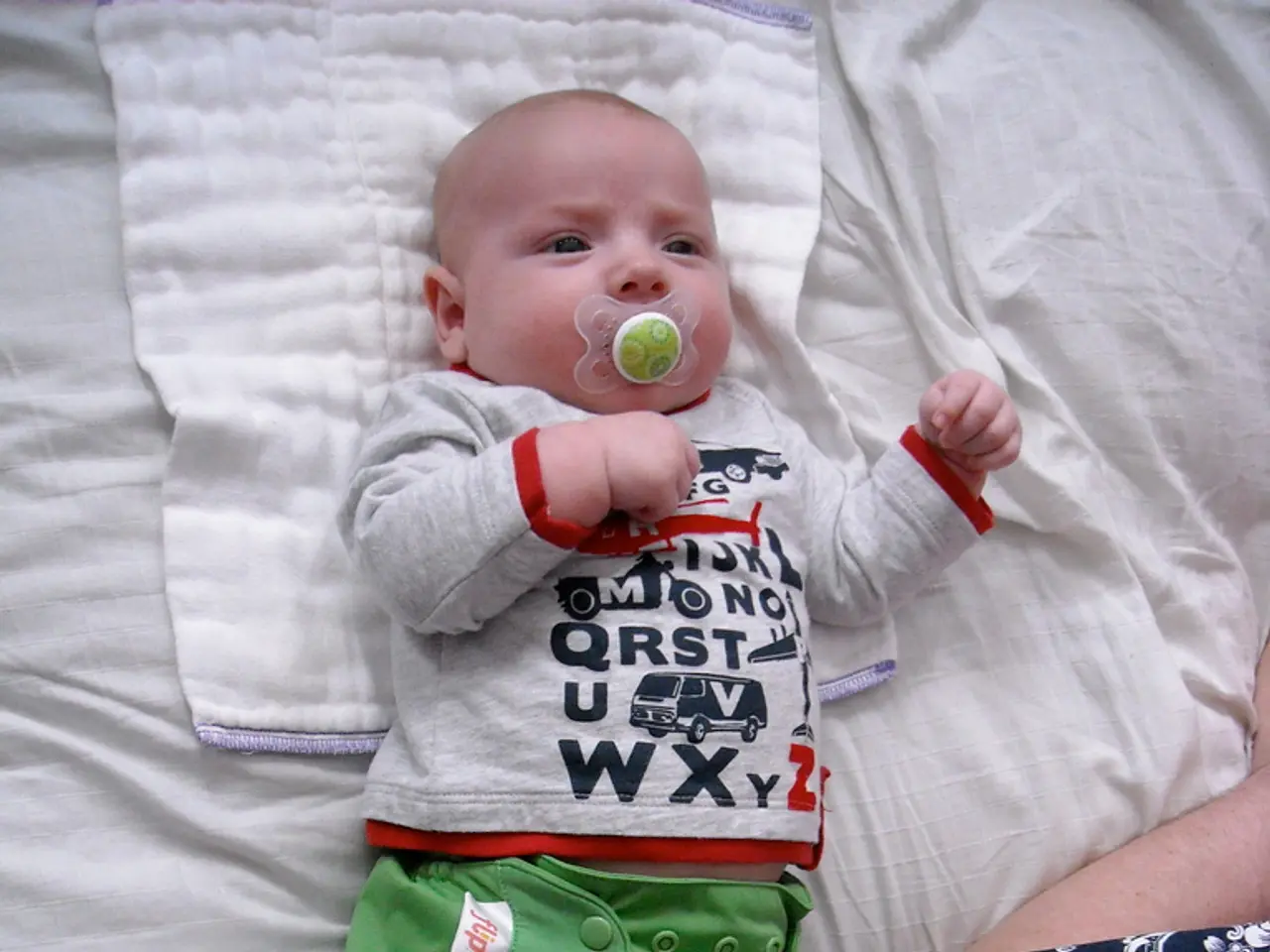Baby Hiccups: When to Worry and Simple Remedies
Baby hiccups are a common occurrence that usually doesn't warrant worry. They're often harmless and can be managed with simple techniques. However, they may sometimes indicate a more serious issue like gastroesophageal reflux disease (GERD).
Hiccups happen when the diaphragm, a muscle that aids in breathing, spasms or cramps, leading to the distinctive 'hic!' sound. They can be triggered by various factors, including increased gas in the stomach, which is common in newborns and infants. To help prevent or relieve hiccups, try burping your baby more frequently during feedings or using a pacifier to relax the diaphragm.
If your baby's hiccups are persistent or accompanied by other symptoms like coughing, spitting up, irritability, or arching the back during or after feedings, it could indicate GERD. In this case, consult a healthcare provider. Gripe water, an over-the-counter herbal blend, may help with hiccups, but it's not always necessary as they typically resolve on their own. If your baby's hiccups are bothering you, try changing feeding positions to more upright ones.
Baby hiccups are common and usually not a cause for concern. They can be managed with simple techniques like burping more frequently or using a pacifier. However, if they're persistent or accompanied by other symptoms, they may indicate GERD, and a healthcare provider should be consulted.
Read also:
- Americans Lose Insurance Under New Tax Legislation, Affecting 10 Million Citizens
- Trump Signs Law Defunding Planned Parenthood, Threatening Healthcare Access for Millions
- Historian Ute Frevert Explores Germans' Emotional Bond With Constitutions
- Milei's Ideological Approach Reshapes Argentina's Foreign Policy




